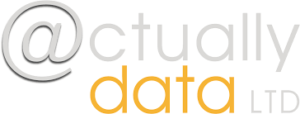Refuge is committed to a world where violence against women and girls (VAWG) is no longer tolerated. For almost 50 years, we have empowered women and children to rebuild their lives, free from fear and violence, by providing a range of life-saving and life-changing services.
and girls (VAWG) is no longer tolerated. For almost 50 years, we have empowered women and children to rebuild their lives, free from fear and violence, by providing a range of life-saving and life-changing services.
Today we are the largest single provider of specialist services to 7,000 survivors of domestic, sexual and gender-based violence on any given day. We provide a national network of 48 refuges, child support services, independent advocacy and community outreach. We also run specialist services for survivors of modern slavery, ‘honour’-based violence, and female genital mutilation. Refuge also runs the National Domestic Abuse Helpline which answers over 270 calls every day.
During the first lockdown, demand for Refuge’s National Domestic Abuse Helpline jumped by 66%, and visits to the website (where women can request contact and live chat) increased by a massive 950%. It was crucial that our Covid-19 fundraising response campaign was successful, to allow our services to weather this intense pressure and demand. We responded quickly and flexibly putting in place a digital fundraising response within days of the first national lockdown. The campaign achieved truly spectacular results. We had an initial target of £150,000, but actually raised over £1.2m. The combination of support from our press team in generating widespread media coverage of the developing situation, as well as being able to optimise our digital activity using the same urgent messages led to an overwhelming response from the general public.
Dimitris Mandiliotis has worked with Refuge for over two years and recognised that improvements were required to their income recording processes, financial transaction volumes had increased from 78,000 in 19/20 to 382,000 in 20/21 and they needed a robust and scalable solution that could be managed by the data team.
The key objective was to ensure income was coded correctly and in line with Refuge’s internal allocation requirements. For example
This was not a simple mapping.
The coding process was being managed in Access staging databases to prepare data for import to Raiser’s Edge; this had a number of technical challenges and a lot of complexities. For example, the Access database was structured in a way where the architecture was separated by transaction types, leading to 7 separate Access databases in need of maintenance at any time. Any changes to Engaging Networks or Raiser’s Edge would require a change to be made in all Access databases and it was becoming increasingly difficult both technically and in terms of the time it was taking to maintain the solution.
Additionally moving from Raiser’s Edge 7 self-hosted to Raiser’s Edge NXT and the new home working requirements meant a hosted solution was required.
Refuge worked with Anthony Fawkes from Actually Data on redesigning their income recording processes, alongside the migration to Raiser’s Edge NXT and other database related improvements.
Actually Data on redesigning their income recording processes, alongside the migration to Raiser’s Edge NXT and other database related improvements.
The work done on Engaging Networks is split into two parts.
A staging phase using PowerQuery (Excel), which includes pulling data from EN via the Bulk Export API.
The second stage uses ImportOmatic to import the prepared data to Raiser’s Edge, with minimal to no “complex” logic on the ImportOmatic side.
Dimitris with his team, Tom Semlyen and Benedicte Van Boxel, have achieved some really tangible benefits from this activity resulting in measurable efficiencies alongside a solution they are now comfortable with that will scale as they continue to grow.